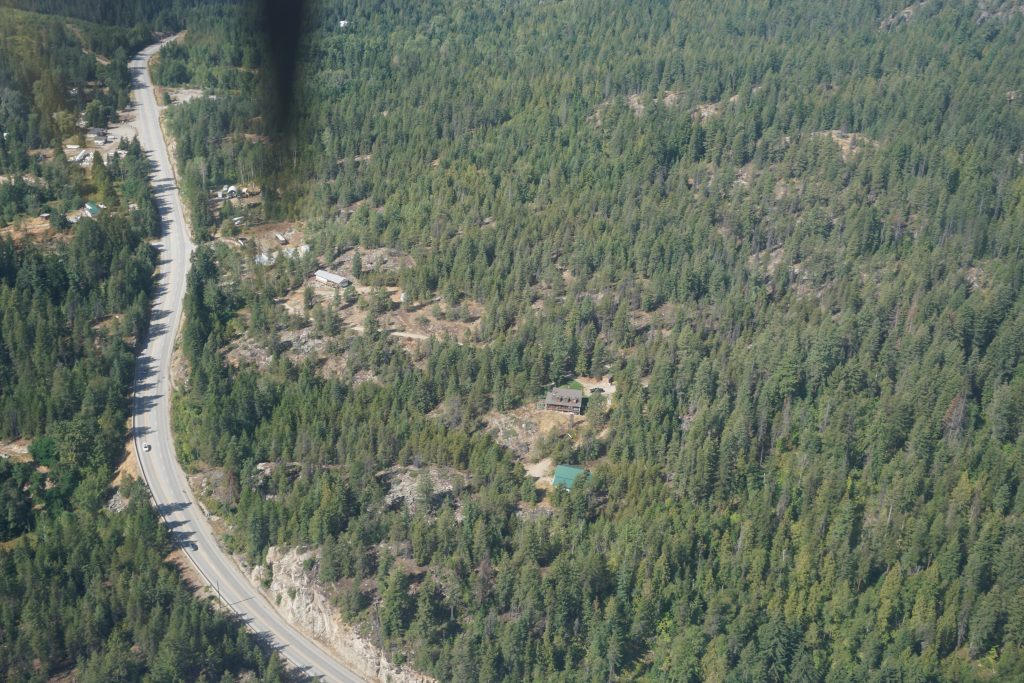
Industry News
News
Kootenay loggers, environmental group await judge’s decision on disclosing info
October 6, 2022 By John Boivin, Local Journalism Initiative Reporter
 Photo: Annex Business Media.
Photo: Annex Business Media. A Nelson-based judge has reserved her decision on whether to force an environmental group to reveal who’s behind their online information and fundraising campaigns.
Supreme Court Justice Lindsay Lyster didn’t indicate when she’d be handing down her ruling on an application to compel Last Stand West Kootenay to release the names of some of their activists and supporters.
Lyster heard an application from Cooper Creek Cedar’s lawyers on September 23 at an all-day hearing in a Nelson courtroom.
Lawyer Matthew Scheffelmaier told the court the logging company was applying for a Norwich order against Last Stand West Kootenay, a group that staged a series of protests against logging near Argenta at the north end of Kootenay Lake last spring.
A Norwich order is a special legal tool used to force third-party companies — like internet content creators or banks — to reveal information about a potential wrongdoer. The order can be made even before a statement of claim is issued or any wrongdoing proven.
‘Minds behind website’
Scheffelmaier told Judge Lyster the protests had caused financial harm to Cooper Creek Cedar, and they were seeking information to find out the people behind the protest.
Seventeen members of Last Stand already face civil charges of violating an injunction as a result of the protests last May, when RCMP were called in to break up a blockade on a forestry road in the Argenta-Johnson’s Landing area.
“We are seeking an order to find out who is the mind behind this website,” Scheffelmaier told the court.
Scheffelmaier pointed to online posts by individual supporters encouraging people to “hold space” – a euphemism for blocking the road, he said – and a consent form that advised protesters not to use the word ‘blockade’ when discussing their actions at the protest camp. He said the online statements supported actions that would have a detrimental effect on the company by delaying the harvesting of wood for more than two weeks. He said those actions constituted economic harm and a breach of the court injunction.
The company was also seeking the name of the person managing the online fundraising account for Last Stand West Kootenay.
“The blockaders know they are egging on something unlawful, and they are trying to appear they are not,” he told the court. He suggested even an online post encouraging people to bring food out to a potluck at the protest camp site was culpable.
That prompted Justice Lyster to ask how an invitation to a potluck could be considered a breach of the injunction, noting that many of the statements highlighted by the logging company lawyer “could mean a lot of things, and don’t necessarily mean a blockade.”
“If some posts appear to encourage [violating the injunction] and some don’t, then maybe there’s some information you should be seeking, and some not?” she asked the lawyer. “…You seem to be casting the net pretty widely.”
Defending statements
The lawyer defending the protesters said Cooper Creek Cedar hadn’t proven enough to justify granting the Norwich order.
“I’m in the dark as to what the legal basis is [for the application],” Noah Ross told the court.
Ross told the court the order forcing companies to reveal individuals is normally used for cases of fraud, and has also been used in online defamation cases. In this case, the connection of the protests to criminal activity was limited, he argued. He said there was no evidence linking Last Stand West Kootenay to criminal counselling. “You need more evidence than having a post on a website,” he said.
“Whether they encouraged people to breach the injunction or economically interfere (with Cooper Creek Cedar) is not clear,” he said, and described the activities by Last Stand as protected expression under the Charter of Rights.
“They [Cooper Creek Cedar] are painting what are expressions of lawful disobedience as illegal activity,” he told the judge. “There’s no evidence those other activities caused any economic harm to Cooper Creek Cedar.”
Additionally, Ross argued the logging company already has the names of the protesters arrested at the camp, and hasn’t used that information to further their claims of damages – calling the logging company’s motion “fishing for names.”
Justice Lyster concluded the hearing without rendering a decision. That could come in the next month or so.
John Boivin is a Local Journalism Initiative reporter with Valley Voice.
Print this page